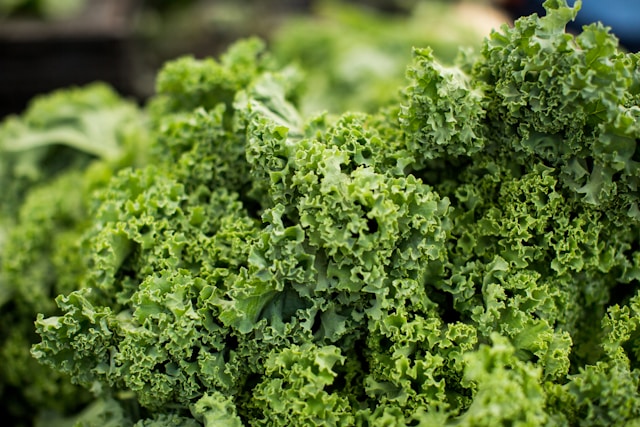Understanding the Importance of Vitamin A for Optimal Health
January 25, 2017
Have you ever experienced weakness, lack of energy, stomach upset, pain in multiple organs, irritation, depression and anxiety? While you may be bewildered by any or all of these symptoms, the fact may be quite simple – you are suffering from vitamin deficiency! Vitamins are indeed very vital for our health and so, Earth’s Wisdom is going to share with you some facts about the first in the lineup of vitamins, vitamin A. Eventually we will take a look at others too in the series.
What is Vitamin A?
While we know vitamin A as a single vitamin, unlike the B-complex which is a group of vitamin B, actually vitamin A IS a group, though of retinoids. It includes retinal, retinol and retinyl esters. All these are fat-soluble.
Why is Vitamin A Essential?
Vitamin A is responsible for proper functioning of our vision, immune system, reproductive system as well as cellular communication.
Vision: As you might have learned since childhood that carrot is essential for good vision because it contains vitamin A. This is because there is a protein named rhodopsin in our retinal receptors that absorbs light and is formed only when we consume vitamin A.
Cell Growth: Vitamin A supports cell growth and thus has a vital role in the formation and normal maintenance and functioning of all organs including heart, kidneys and lungs.
Vitamin A in Our Diet
We can take vitamin A through our diet in two forms:
- Preformed vitamin A: Retinol and retinyl ester, the esterified form of retinol
- Provitamin A Carotenoids
Preformed vitamin A occurs in animal-based foods, like fish dairy products and meat. Provitamin A carotenoid occurs in different forms, like alpha carotene, beta carotene and beta cryptoxanthin. All these are plant pigments and our body converts them into vitamin A.
Both preformed vitamin A and provitamin A need to be metabolized inside the cells to form retinal and retinoic acid. These are the active forms of the vitamin. They perform important biological functions. Most of the vitamin A in the body is stored in the form of retinyl esters in the liver.
Other carotenoids occurring in foods, like lutein, lycopene and zeaxanthin are not metabolized into vitamin A.
From Where can We Get Vitamin A?
Quantities of preformed vitamin A are the largest in fish oils and liver. Other foods that have preformed vitamin A in them are eggs and milk which also include some provitamin A.
Most of the dietary provitamin A can be taken through green leafy vegetables, yellow and orange veggies, fruits, tomato products and some vegetable oils. Carrots, cantaloupe, squash and broccoli are the major sources of provitamin A.
What can Happen Upon Not Getting Adequate Vitamin A?
In a developed country like the US, vitamin deficiency is quite rare, while it is common in several developing countries. This is mostly because residents don’t get much of animal-based foods that contain preformed vitamin A. Even chronic diarrhea results in loss of vitamin A and in turn vitamin A deficiency increases the risk of diarrhea. The most common symptom of vitamin A deficiency is xerophthalamia which typically shows night blindness as an early symptom. Also vitamin A deficiency can lead to low iron in the body and consequently anemia. Also due to vitamin A deficiency, the severity and risk of mortality from infections increases (especially in measles and diarrhea) even prior to the onset of xerophthlamia.
Conclusion
In conclusion, Vitamin A is an essential nutrient that plays a crucial role in maintaining optimal health. It is important for healthy vision, skin, and immune function, and is involved in many other physiological processes in the body. Eating a balanced diet that includes Vitamin A-rich foods, such as liver, eggs, dairy products, and orange and green vegetables, can help us meet our daily requirements. However, consuming too much Vitamin A can be harmful, so it's important to be mindful of our intake and consult with a healthcare provider if we have any concerns. By making informed food choices and being mindful of our Vitamin A intake, we can support our overall health and well-being.
It's also worth noting that Vitamin A is just one of many important nutrients that our bodies need to function properly. Eating a well-balanced diet that includes a variety of whole, nutrient-dense foods is key to promoting optimal health. In addition to Vitamin A, other essential vitamins and minerals, such as Vitamin C, Vitamin D, Calcium, and Iron, are also important for our health and well-being. While it can be challenging to get all the nutrients we need from food alone, taking a daily multivitamin or other supplements may help us meet our daily requirements. However, it's important to talk to a healthcare provider before starting any supplement regimen. By prioritizing a healthy and varied diet, along with other healthy habits, we can support our overall health and well-being for years to come. So, make sure to incorporate Vitamin A into your diet and enjoy the many benefits it has to offer!
Leave a comment
Comments will be approved before showing up.
Also in Wisdom News

The Importance of Vitamin K2: Unlocking its Role in Health and Wellness
September 22, 2024

The Importance of Omega-3 Fatty Acids: A Comprehensive Review of Their Effects on the Body
August 02, 2024

The Benefits of Mindfulness Meditation for Mental Health
July 12, 2024
Disclaimer: These statements have not been evaluated by the FDA. These products are not intended to diagnose, treat, cure or prevent any disease.
© 2026 Earth's Wisdom®. All Rights Reserved.




